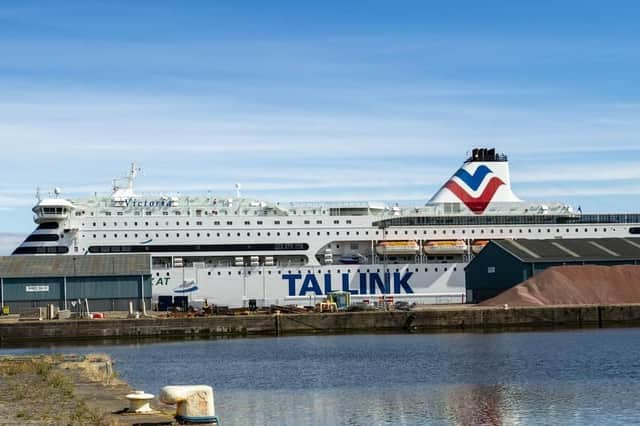Number of Ukrainians stuck in hotel rooms not likely to reduce significantly, government admits


The number of temporary hotel rooms currently occupied by Ukrainian refugees in Scotland is more than 1,800 – and is not likely to reduce dramatically in the coming weeks, a Scottish Government report has admitted.
A total of 1,860 rooms in hotels were being used as “welcome accommodation” by the Scottish Government on 10 July – despite just a few new refugees arriving from Ukraine each week.
Advertisement
Hide AdAdvertisement
Hide AdStatistical modelling used in the report forecast that the number of rooms would drop to between 1,510 and 1,700 by 21 August, leaving thousands of Ukrainians living in short term accommodation for months. Many people are living in hotel rooms as families, including young children, meaning that the actual number of people living in welcome accommodation is far higher.
This comes as over a thousand people were moved out of the MS Victoria cruise ship in Leith, Edinburgh at the start of July. The Scottish Government said at the time that it had found accommodation for all of those on board, but admitted some had not been found long-term places to stay.
The report said the number of refugees from Ukraine had peaked in November 2022 with around 7,200 people in welcome accommodation, which has halved to around 3,535 by July this year.
It added that the number of people arriving for the first time in Scotland on a Scottish Government sponsored Homes for Ukraine visa would be between zero and 15 people per day, with a most likely value of five people per day.
No new visas have been issued for more than a year, following the suspension of the Scottish Government’s Super Sponsor scheme last summer.
Meanwhile, the number of hotel rooms being vacated per day, due to those living there moving into a longer-term form of accommodation such as a privately rented flat, or social housing, was likely to be just six.
The report said some people who were required to be hosted by the government also included a small number of people who have lived in Scotland for some time with individual hosts, whose hosting arrangements had come to an end.
It also said the closure of the Leith cruise ship – and another in Glasgow, which was shut down in March – had seen those previously living on board move into a mixture of longer term accommodation and other short-term options.
Advertisement
Hide AdAdvertisement
Hide AdThe report said: “The departures of M/S Ambition on 31 March and of M/S Victoria on 11 July have an impact on the departure of guests from welcome accommodation, as concerted efforts are required to find alternative accommodation for guests on board the ships. Some guests move into other welcome accommodation (ie hotel rooms), but others leave into alternative destinations.”
The Super Sponsor scheme, which allowed Ukrainians to name the Scottish Government as their sponsor for a UK Government Homes for Ukraine visa, rather than find an individual host, put the onus on the authorities to find temporary accommodation for refugees after their arrival. Many were put up in hotels until a more permanent solution could be found.
The initiative was paused, initially for three months, in July last year, to allow the Government to catch up with a backlog of new arrivals.
Comments
Want to join the conversation? Please or to comment on this article.
